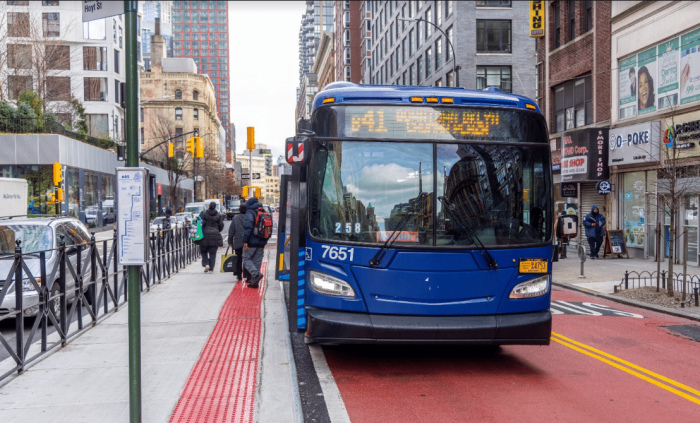By Steve Mosco
Wildlife strikes are on the rise at John F. Kennedy International Airport, according to data released by the Federal Aviation Administration.
The FAA’s data found that planes at Kennedy came into contact with birds, rabbits and other wildlife 257 times in 2011, a 17 percent increase from 2010 and a 55 percent jump from 2009.
The latest incident at the airport occurred last Thursday, when a Delta Boeing 757 jet destined for Los Angeles had to make an emergency landing after a bird strike on the right engine just after takeoff.
After Flight 1063 encountered the birds, the captain decided to returned to Kennedy as a precaution, according to a representative for Delta. The twin-engine plane carried 179 passengers and crew.
The Gateway National Recreation Area, which manages wildlife refuges in the area, said the U.S. Department of Agriculture is currently working on an analysis and impact statement concerning wildlife and how to protect passenger planes.
The study will go beyond the airports and study the population of Canada geese and other birds in Jamaica Bay.
“We have been working for many years with the Port Authority and the FAA to ensure the safety of the flying public,” said Reina T. Becnel, public affairs officer for Gateway. “We expect the report from the Department of Agriculture shortly. Meanwhile, the analysis is ongoing and we will continue to work with federal and local agencies to ensure the public flies at ease.”
There have been 2,586 bird strikes at JFK since Jan. 1, 1990, according to FAA data, although all were not necessarily dangerous or during flights.
Such incidents are not exclusive to JFK, according to Ken Paskar, president of Friends of LaGuardia Airport.
“This bird strike is not an isolated incident,” he said. “In September, Delta Airlines Flight 1380 departed LaGuardia and was forced to make an emergency landing at JFK after losing an engine due to a bird strike.”
Paskar said the bird strikes will become more frequent if a planned garbage transfer station in College Point is installed at the end of a runway at LaGuardia.
“Birds are intelligent creatures and will exploit a new food source,” he said “This garbage station will become a bird magnet and endanger thousands of passengers and people on the ground every day.”
In 2009, US Airways Capt. Chesley Sullenberger and his crew saved 155 lives after their plane was hit by birds and they were forced to land in the Hudson River.
Birdstrike.org estimates that wildlife strikes cause more than $600 million in damage to U.S. civil and military aviation annually. According to the organization, more than 219 people have died worldwide as a result of wildlife strikes since 1988.
Reach reporter Steve Mosco by e-mail at smosco@cnglocal.com or by phone at 718-260-4546.
































